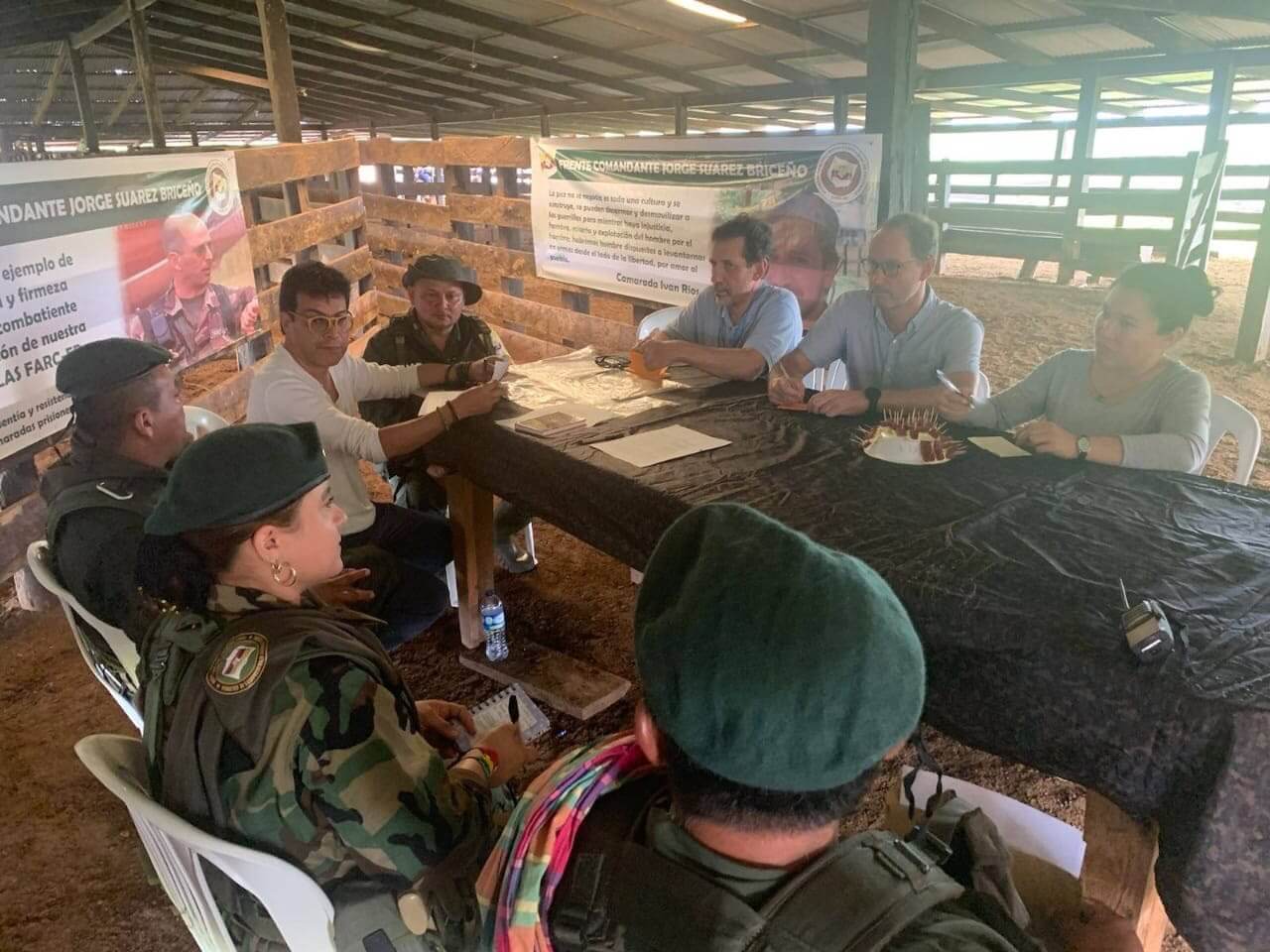In keeping with President Gustavo Petro’s aspirations for “Total Peace,” Colombian Peace Commissioner Danilo Rueda finalised a bilateral ceasefire with the Revolutionary Armed Forces of Colombia (FARC) “to forever leave behind decades of brotherly violence.”
During a meeting in Caquetá on Saturday, dissident groups agreed to further talks towards demobilisation and disarmament, conditional upon the fulfilment of their two demands—the appointment of neutral guarantors for the peace accord and a commitment by the government to address the historical causes of the armed conflict.
The two sides issued a joint statement reaffirming that this “exploratory and rapprochement meeting will assess the possibility of initiating talks in the framework of total peace.” It was seconded by two international observers—United Nations representative Raul Rosende and Norwegian diplomat Dag Nagoda.
Atentos: Reunión clave entre el Comisionado de Paz Danilo Rueda y las disidencias de Farc con acompañamiento de Noruega y de @MisionONUCol en la que se abre la puerta a un cese bilateral del fuego para iniciar diálogos de “paz total”. Vía @UltimaHoraBLU @BluRadioCo pic.twitter.com/XJJWmCViVp
— Ricardo Ospina (@ricarospina) September 18, 2022
Saturday’s negotiations involved a prominent FARC faction called Jorge Briceño, which signed a peace agreement with the government in 2016. Other signatories included Calarcá Córdoba, Alonso 45, Ermes Tovar, and Erika Castro.
Rueda revealed that former FARC senior commander Iván Márquez, the leader of another dissident faction known as Second Marquetalia, has also shown willingness to engage in dialogue. He thus expressed optimism that “we could be on the brink” of a multilateral ceasefire.
Ever since Petro was sworn in as Colombia’s first leftist President last month, he has pledged to pursue a “total peace” plan to completely implement the terms of the 2016 peace accord signed between the government and the FARC rebels that calls for the surrender of criminal gangs in exchange for reduced sentences. An ex-rebel himself, Petro promised to put an end to the six-decades-long armed conflict in the country.
Comienza un dialogo. pic.twitter.com/dwDeGulOo2
— Gustavo Petro (@petrogustavo) September 18, 2022
Three key rebel groups—the FARC, Gulf Clan, and the National Liberation Army (ELN)—are vying for control over the key drug trafficking routes in the country and the resultant conflict between the government, extremist rebels, paramilitaries, and drug-trafficking gangs was responsible for over 450,000 fatalities between 1985 and 2018. Government estimates suggest that over 2,400 fighters are still active in the country.
In fact, earlier this month, seven police officers were killed during an attack in Neiva, the deadliest offensive against the security forces since Petro took office.
Furthermore, the fighting has periodically even spilled over into neighbouring Venezuela, which until recently caused a significant deterioration of bilateral ties.
#StatecraftInTheNews: 🇨🇴 Former Colombian VP Marta Lucía mourned the death of 7 policemen killed during an attack in #Neiva, alleging that "some politicians" have tried to "disqualify and dismantle" #Colombia's police force despite it being an "exemplary institution."
— Statecraft (@statecraftdaily) September 7, 2022
In this regard, the government has time and again launched combat operations targeting rebel outfits. In July, for instance, FARC leader Nestor Vera and nine other rebels were killed by security forces in a raid in the country's southwest. Similarly, 11 FARC members were shot dead in March.
While talks with the ELN were suspended by his predecessor Iván Duque in 2019 following a car bomb attack on a police academy in Bogotá that left 32 people dead, Petro has vowed to revive peace negotiations with the guerilla group next week in Havana and has called on Venezuela, Spain, Cuba, and Chile to serve as guarantors.
Petro’s efforts to broker peace deals with armed groups have been lauded by analysts, who opine that the “total peace” plan will ensure “No more massacres, no more murdered policemen, and no more youth in war.”

